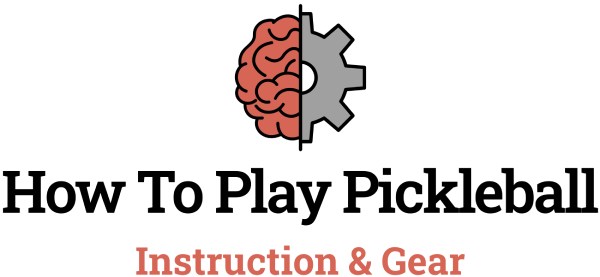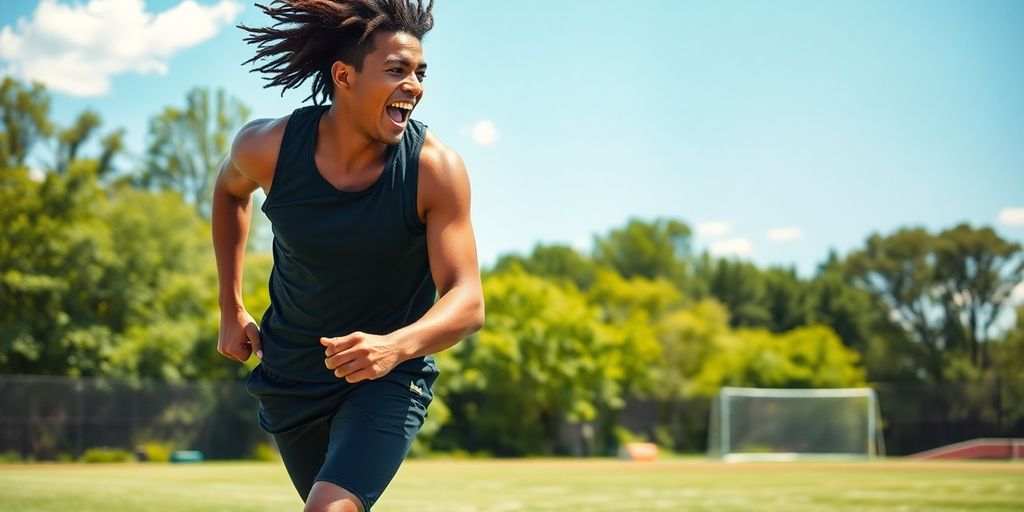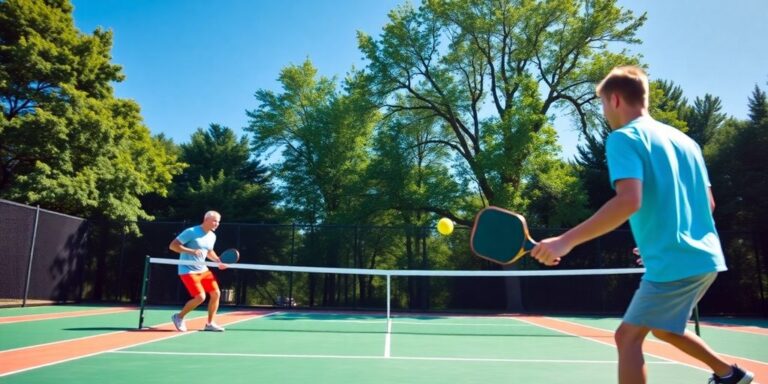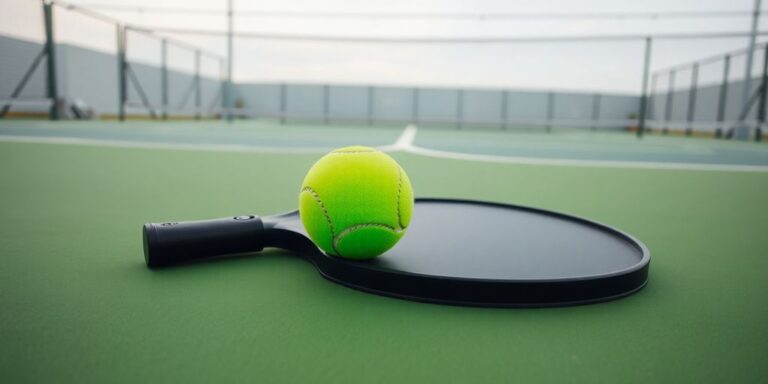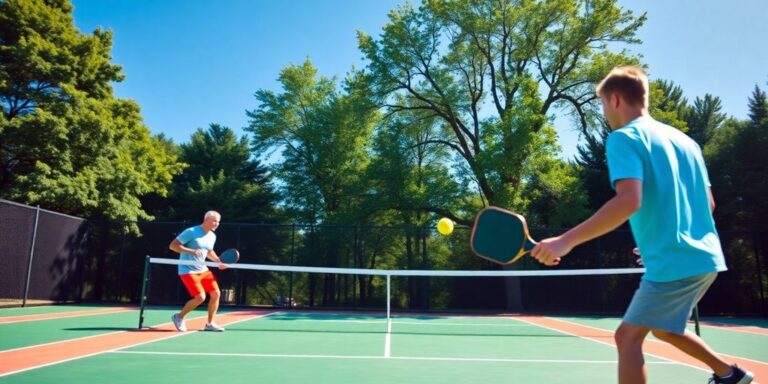Ever feel like you’re stuck in second gear, both in life and on the field? You’re not alone. Many folks struggle to find that sweet spot where everything just clicks. Whether you’re aiming to ace your next game or tackle life’s challenges with more grit, understanding the mental and physical aspects can make a world of difference. Let’s dive into some key takeaways that can help you play your best, no matter where you are in your journey.
Key Takeaways
- Visualize success before it happens. Picture yourself achieving your goals to boost confidence.
- Don’t let mental hurdles hold you back. Identify and tackle them head-on.
- Build resilience by practicing mindfulness. It helps keep stress in check.
- Strength and flexibility go hand in hand. Both are essential for peak performance.
- Teamwork isn’t just for sports. Good communication and support help in all areas of life.
Mastering the Mental Game to Play Your Best
Harnessing the Power of Visualization
Visualization isn’t just for the pros. It’s a tool anyone can use to improve their game. Picture this: you’re about to take the winning shot. Close your eyes and see it in your mind. Feel the ball in your hands, the weight of it, the texture. Imagine it sailing through the air and swishing through the net. This kind of mental rehearsal can boost confidence and improve actual performance. It’s like your brain gets a sneak peek of success and wants to replicate it in real life.
Overcoming Mental Blocks
We’ve all been there—stuck in a rut, unable to get past a certain point. Whether it’s fear of failure or just plain doubt, mental blocks can be tough. But they’re not impossible to overcome. Start by acknowledging them. Then, break them down. Ask yourself: what’s really holding me back? Sometimes, writing it out helps. Once you know what you’re dealing with, you can tackle it head-on. Try small, incremental steps to build confidence and push through the barrier.
Building Resilience Through Mindfulness
Mindfulness isn’t just a buzzword; it’s a powerful tool for resilience. By staying present, you can manage stress and maintain focus. It’s about being aware of your thoughts and emotions without judgment. This awareness helps you respond, not react, to challenges. Practices like meditation or even simple breathing exercises can ground you, keeping your mind clear and ready for whatever comes your way. In sports and life, resilience is about bouncing back, and mindfulness gives you the tools to do just that.
Building a Strong Physical Foundation

Creating a robust physical base is crucial for any athlete, whether you’re a weekend warrior or an aspiring pro. Let’s break down the key components that make up this foundation.
Strength Training for Optimal Performance
Strength training isn’t just about bulking up; it’s about making sure your muscles can handle whatever you throw at them. You need to build strength that supports your movements, whether you’re sprinting down a field or just walking your dog. Think of it as preparing your body to be strong enough to support all your activities without breaking down.
- Progressive Overload: Gradually increasing the weight or resistance you use in workouts to build muscle strength.
- Compound Movements: Focus on exercises like squats, deadlifts, and bench presses that work multiple muscle groups at once.
- Consistency: Regular training sessions are key to seeing improvements.
Enhancing Flexibility and Mobility
Flexibility and mobility go hand in hand, and they’re essential for preventing injuries and improving performance. A good range of motion allows your body to move freely and efficiently, which is crucial in any sport.
- Dynamic Stretching: Incorporate movements that mimic your sport to improve your range of motion.
- Static Stretching: Hold stretches after workouts to help lengthen muscles and improve flexibility.
- Mobility Drills: Use foam rollers and mobility exercises to maintain joint health and function.
The Role of Nutrition in Athletic Success
Nutrition is the fuel that powers your performance. Eating right helps your body recover and perform at its best.
- Balanced Diet: Ensure you’re getting a mix of carbohydrates, proteins, and fats.
- Hydration: Staying hydrated is key to maintaining performance levels.
- Timing: Eating the right foods at the right times can enhance your energy levels and recovery.
Building a strong physical foundation is like constructing a building. You need a solid base to support everything else. Without this foundation, the rest of your athletic abilities can’t reach their full potential.
By focusing on these areas, you’ll be setting yourself up for better performance and fewer injuries. Remember, it’s not just about working hard; it’s about working smart. For more insights on how athletic performance relies on balance and stability, consider integrating stability training into your routine. This will not only boost precision and control but also help in injury prevention.
The Importance of Team Dynamics in Sports and Life

Fostering a Supportive Team Environment
Being part of a team is more than just wearing the same uniform. It’s about creating a supportive atmosphere where everyone feels valued. In both sports and life, having a team that has your back can make all the difference. When you mess up, it’s your teammates who lift you up, and you do the same for them. This mutual support builds trust and camaraderie, which are essential for any team’s success.
- Encourage open communication to understand each other’s strengths and weaknesses.
- Celebrate small victories together to boost morale.
- Provide constructive feedback to help each other grow.
Effective Communication Strategies
Communication is the backbone of any successful team. It’s not just about talking; it’s about listening and understanding. Effective communication ensures that everyone is on the same page, reducing misunderstandings and conflicts. In sports, clear communication can be the difference between a win and a loss.
- Practice active listening to truly understand what others are saying.
- Use positive language to motivate and inspire your teammates.
- Regularly hold team meetings to discuss goals and strategies.
Learning from Team Successes and Failures
Every team experiences highs and lows. The key is to learn from both. Successes should be celebrated, but it’s the failures that often teach the most valuable lessons. Embracing these moments as learning opportunities can lead to greater growth and development.
- Analyze past performances to identify areas for improvement.
- Encourage a growth mindset where mistakes are seen as learning tools.
- Reflect on what worked well and what could be done differently next time.
In the end, it’s not just about winning the game but about growing together as a team. The experiences shared, the lessons learned, and the bonds formed are what truly define a successful team.
Turning Mistakes into Opportunities for Growth
Embracing Failure as a Learning Tool
Mistakes happen, and that’s okay. They’re not the end of the world but rather stepping stones to improvement. Think about it: every time you mess up, you get a chance to learn something new. Whether you’re playing sports or just dealing with life, embracing mistakes can be a game-changer. Instead of seeing them as failures, view them as opportunities to learn and grow.
- Analyze what went wrong.
- Identify what you can do differently next time.
- Implement the changes and try again.
Developing a Growth Mindset
Having a growth mindset means believing that you can improve through effort and learning. It’s about seeing challenges as opportunities rather than obstacles. When you approach life with this mindset, setbacks become less daunting, and you become more resilient. Here’s how you can start developing it:
- Acknowledge your imperfections and understand that everyone makes mistakes.
- Seek feedback and use it constructively.
- Persevere through difficulties by focusing on the process rather than the outcome.
Strategies for Analyzing and Improving Performance
Once you’ve embraced failure and adopted a growth mindset, it’s time to focus on improvement. Analyzing your performance is key to making progress. Here are some strategies you can use:
- Reflect regularly on your actions and decisions. Ask yourself what worked and what didn’t.
- Set specific goals for improvement and track your progress over time.
- Practice deliberately, focusing on areas that need improvement.
"In sports, it’s not just about winning or losing. It’s about learning from every game, every play, and every mistake."
Turning mistakes into growth opportunities is not just about changing how you think; it’s about changing how you act. By doing so, you not only improve your skills but also enhance your overall experience, whether in sports or life. For example, avoiding common mistakes in pickleball can significantly enhance your gameplay and enjoyment.
Balancing Training and Recovery for Peak Performance
Understanding the Importance of Rest
Rest is just as important as the workout itself. It’s during downtime that your muscles repair and grow stronger. Skipping rest can lead to fatigue, injuries, and burnout. Make sure you’re getting enough sleep, as it’s the body’s natural way of recovering. Aim for 7-9 hours each night to let your body recharge.
Incorporating Active Recovery Techniques
Active recovery involves low-intensity exercises that help keep blood flowing and muscles loose without the strain of a full workout. Activities like walking, swimming, or yoga can be great for active recovery days. Here’s a quick list of active recovery ideas:
- Light jogging or brisk walking
- Stretching routines
- Gentle cycling
- Swimming at a leisurely pace
Preventing Burnout Through Smart Training
Training smart means listening to your body and adjusting your workouts accordingly. If you’re feeling sore or overly tired, it might be time to scale back. Avoid sudden increases in training intensity or volume. Here are a few tips to prevent burnout:
- Schedule regular rest days.
- Mix up your routine to keep it interesting.
- Stay hydrated and eat well to fuel your body.
Balancing exercise with adequate rest and active recovery is key to sustaining peak performance. By paying attention to your body’s signals, you can enjoy longer and more fulfilling athletic pursuits.
For those looking to excel in pickleball, focusing on recovery as much as training can significantly boost your game. Similarly, finding the right balance of rest and activity is crucial for motivated athletes aiming for peak performance. Combat athletes, too, benefit from balancing training intensity with recovery to enhance endurance and prevent burnout.
Unlocking Your Subconscious for Better Play
The Science Behind Subconscious Performance
Ever wondered why sometimes you just "choke" in a game? It’s all about the subconscious mind. Your subconscious is like the backstage crew in a theater production, quietly ensuring everything runs smoothly. When you’re in the zone, your subconscious takes over, allowing you to perform without overthinking. This state is often referred to as being "in the zone" or "in the flow." Athletes who tap into this can play with a kind of effortless grace, making complex tasks look easy. The key is to let your subconscious mind do its job without interference from your conscious thoughts.
Techniques to Access Your Subconscious Mind
- Visualization: Picture yourself succeeding. Imagine every detail, from the environment to the sensations you feel during the performance. This primes your subconscious for success.
- Relaxation Techniques: Try deep breathing or meditation. These methods help shift your brainwaves to a more relaxed state, making it easier for the subconscious to take over.
- Affirmations: Use simple, positive statements to reinforce confidence. Your subconscious mind responds well to these "silly" cues rather than logical instructions.
Real-Life Examples of Subconscious Success
Many athletes have faced invisible mental barriers that held them back. By learning to trust their subconscious, they overcame these hurdles and excelled. Think of the tennis player who suddenly finds their rhythm after a few poor serves. Or the basketball player who, despite missing shots, keeps shooting until they hit their stride. These athletes aren’t consciously analyzing every move—they’re letting the subconscious lead, breaking free from unseen pressures that often weigh them down.
"Playing subconsciously is about trusting yourself, letting go of fear, and allowing your natural abilities to shine through. It’s not about perfection but about being in the moment and letting your instincts guide you."
By understanding and harnessing the power of the subconscious, you can elevate your performance in sports and in life. Remember, it’s not just about physical skills; it’s about the mental game as well.
Embracing the Journey to Unlock Your Potential
Setting Realistic and Achievable Goals
When you’re on a journey to better yourself, setting goals is like having a map. But not just any map—a realistic one. Setting achievable goals keeps you on track and motivated. It’s about knowing where you want to go and breaking that down into smaller, manageable steps. Start by asking yourself what truly matters to you. Then, set specific, measurable, and time-bound goals. This approach not only makes the journey less overwhelming but also gives you a sense of purpose and direction.
Celebrating Small Wins Along the Way
Life isn’t just about the big achievements. It’s also about those little victories that happen along the way. Celebrating these small wins can boost your confidence and keep you motivated. Whether it’s mastering a new skill or sticking to a routine, acknowledging these moments helps you appreciate the progress you’re making. Take a moment to reflect on what you’ve accomplished, no matter how minor it seems. This habit of celebrating small wins can reinforce positive behavior and encourage you to keep moving forward.
Staying Motivated Through Challenges
Challenges are inevitable. They’re part of the journey. The key is not to let them derail your progress. Instead, use them as stepping stones. When faced with obstacles, remind yourself why you started in the first place. Surround yourself with supportive people who can offer encouragement and advice. Also, consider reflecting on past successes to boost your confidence. By maintaining a positive mindset and staying focused on your goals, you can overcome challenges and continue on your path to unlocking your potential.
Discover the exciting path to reaching your full potential! At Nunnery’s Pickleball Lab, we offer you the tools and support you need to grow in your pickleball journey. Don’t wait any longer—visit our website to learn more and start your adventure today!
Conclusion
So, there you have it. Whether you’re on the field or just navigating life, playing your best game is all about balance. It’s not just about the physical stuff, like training and nutrition, but also about what’s going on in your head. Remember, mistakes are just part of the journey. They help you grow, even if they sting a bit at first. And don’t forget the team around you—having folks who support you can make all the difference. At the end of the day, it’s about showing up, putting in the work, and being open to learning. Keep pushing, keep growing, and who knows what you’ll achieve?
Frequently Asked Questions
How can I improve my mental game in sports?
Improving your mental game involves practicing visualization, staying focused, and using positive self-talk. These techniques can help you stay calm and perform better under pressure.
What are some tips for building physical strength?
To build physical strength, you can start with basic exercises like push-ups, squats, and lunges. Gradually increase the weight and intensity as you get stronger.
Why is teamwork important in sports?
Teamwork is important because it helps players support each other, communicate effectively, and work towards a common goal, leading to better overall performance.
How can I turn my mistakes into learning opportunities?
You can learn from mistakes by analyzing what went wrong, thinking about how to improve, and staying positive. Mistakes are a chance to grow and get better.
Why is rest important for athletes?
Rest is important because it allows your body to recover, prevents injuries, and helps you perform at your best. Make sure to balance training with enough rest.
How can I set achievable goals in sports?
Set achievable goals by starting with small, realistic targets. As you reach them, gradually increase the difficulty. This helps you stay motivated and see progress.
